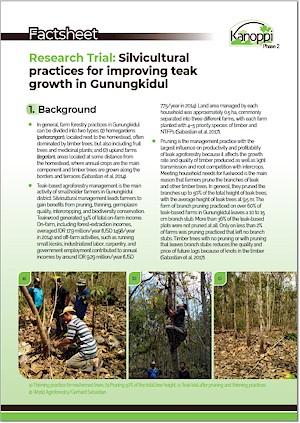Minimizing the deleterious environmental impacts of logging and other silvicultural treatments is the primary conservation goal in tropical forests managed for timber production. While it is always environmentally beneficial to minimize unnecessary damage, more intensive silviculture should not be discouraged in tropical forests in which regeneration and growth of commercially valuable timber species requires such treatments. Failing to regenerate commercial species may render forests more susceptible to conversion to other, more lucrative land uses. Increasing the intensity of silviculture may also decrease the total area of forest exploited for timber, thereby reducing the impacts of over-hunting, timber theft, wildfires, colonization, and conversion, which are facilitated by the increased accessibility of logged areas.
DOI:
https://doi.org/10.1023/A:1023673625940
Skor altmetrik:
Jumlah Kutipan Dimensi:

Tahun publikasi
2003
Penulis
Fredericksen, T. S.; Putz F.E.
Bahasa
English
Kata kunci
biology, trees, plants, silviculture, biodiversity, deforestation, forest management, logging, tropical forests


















